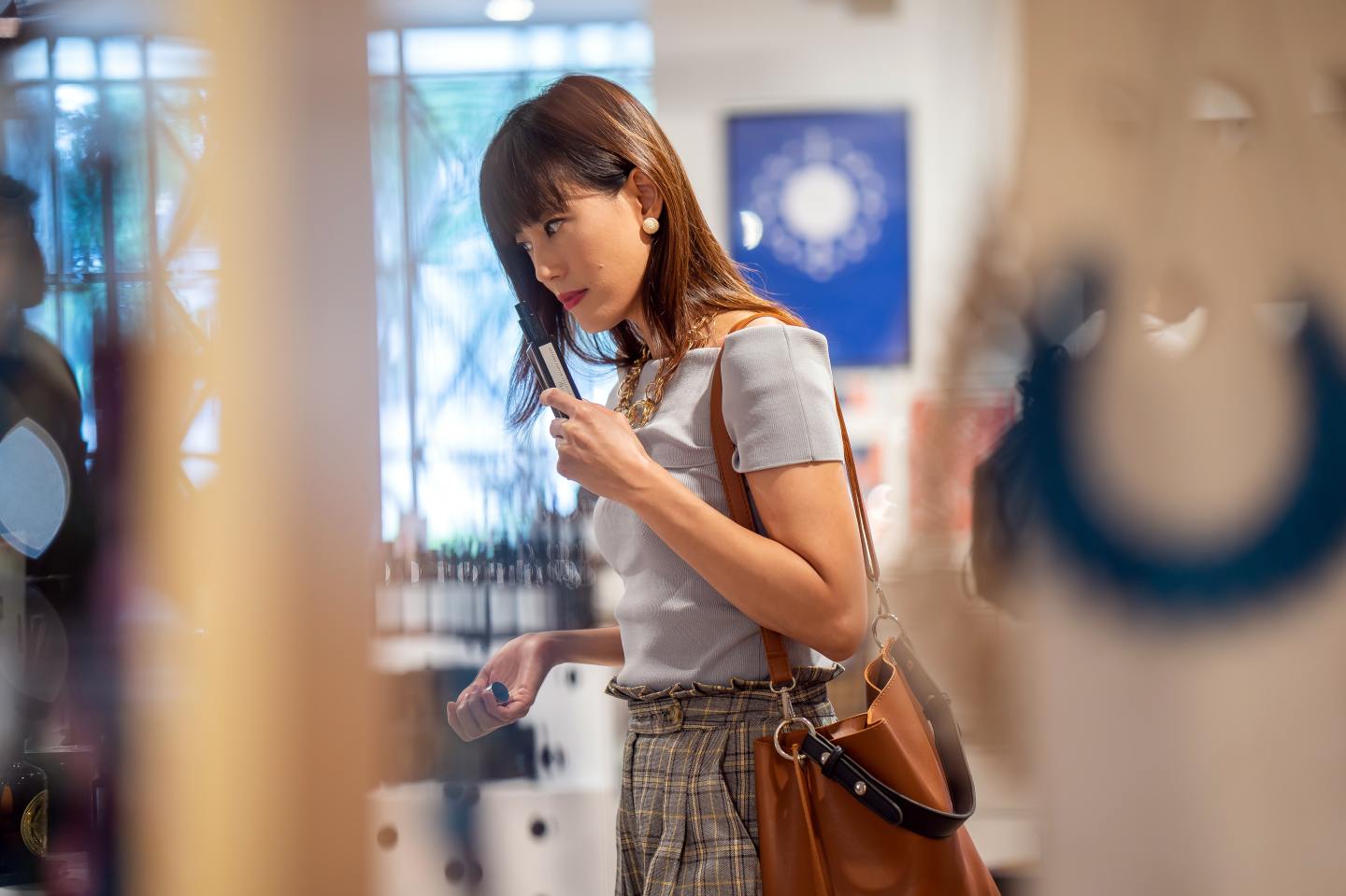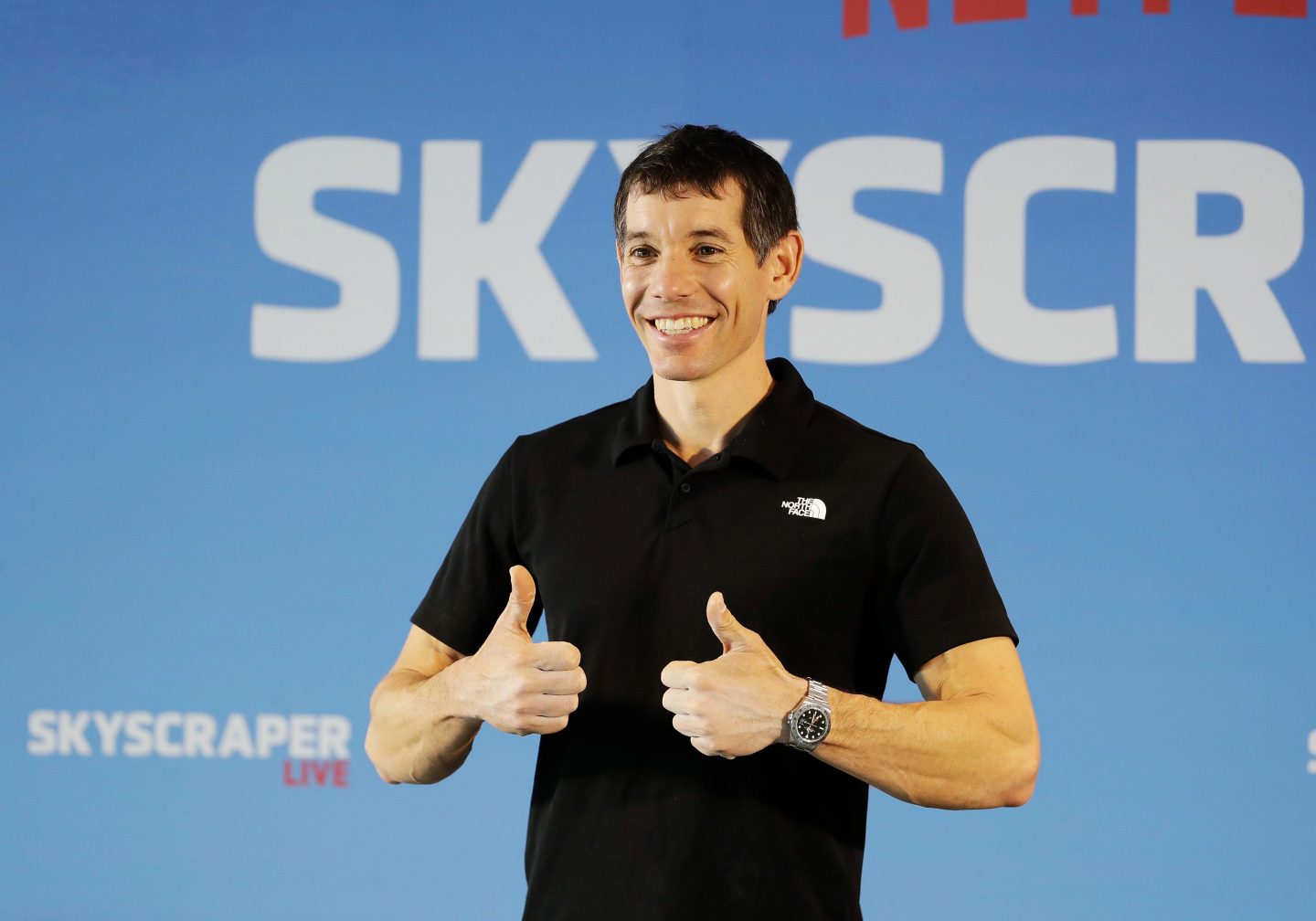In a digitally advanced culture, there is still one thing that can’t be experienced via screen: scent. So why not turn smell into the reason one should actually experience a venue? And, if pleasant enough, can that aroma actually entice folks to stay longer, spend more money, and come back to a destination over and over again?
According to the science of scent marketing, yes.
Also referred to as ambient scent marketing, aroma marketing, and olfactory marketing, the industry “basically uses the power of scent to tell brand stories and to enhance experiences,” explains Caroline Fabrigas, the CEO of Scent Marketing Inc.
A branding and marketing exploit that has been around for decades—at first prevalent in hotels and casinos seeking to mask the smell of cigarette smoke—scent marketing has relatively recently gained momentum across tourist destinations as well.
One World Observatory, the top floor of One World Trade Center in New York, for example, is defined by world-class views of the city below and a specific smell pumped through the air that is reminiscent of the aroma of trees. That scent was commissioned by the venue itself and actually has a name: One World.
Starbucks, on the other hand, figured out that hiding the odor of the food prepared and served in-house enhances the in-store experience of customers who enjoy the smell of brewing coffee more.

The idea isn’t an odd one: We tend to remember moments in our lives based on how we lived them across our five senses. Companies dealing with declining sales and rising rents are trying to diversify ways to appeal to those five senses, hoping to draw in more customers and actually shape the way they live and breathe the brand by evoking certain sensations.
As to what those sensations are, it depends on the brand. Hyatt requested a scent evocative of home and comfort, says Fabrigas; Baccarat went for “a black, smoky, cabalistic, very unusual smell that matched the decor.” Meanwhile, Auberge Resorts wants customers to feel “as if Napa Valley rushed in through your window,” and Physique 57 sought the scent of “precision and luxury.”
For Scent Marketing Inc. Specifically, the process begins with a proprietary brand DNA analysis that Fabrigas developed herself in order to create a scentscape. Said scentscape functions as the brief that a maestro perfumer works with. The company’s 10-person staff doesn’t actually include a perfumer, so Fabrigas works with a fragrance house that gives her access to “the best noses in the world.” A few selections are then brought to the client and diffused in the air. After a choice has been made, the scent is launched at scale. The entire process takes anywhere from eight to 12 weeks.
Scents can’t be patented, so most companies work on exclusivity agreements. “You have exclusive rights to use the particular scent that was created for you and with you,” Fabrigas says. When asked about olfactory thievery and whether others could potentially “steal” a smell, Fabrigas brings up a widely recognized brand. “You can try to re-create Coca-Cola, but you’ll never know what the trade secret is,” she says. “You may create a beverage that tastes like it, but it won’t ever be the original.”
Some brands take scent development into their own hands. Baked goods chain Cinnabon, for example, dishes out fresh cinnamon rolls every 30 minutes to guarantee a certain aroma in the air. The ovens are also at the front of each store, so that potential customers walking by could turn into guaranteed customers.
Science backs up the industry’s central tenet: If something smells good, we want more of it—and more often. “There have been a lot of studies in the past that have proven that, in the presence of a custom scent, an object will have a higher perceived value,” Fabrigas says. “People in bars and restaurants tend to linger longer [if a pleasant aroma wafts through the air]. The recognition of a brand will be more instantaneous after being in the presence of a scent when [smelled] again.”

The idea goes beyond diffusion to encompass more tangible streams of revenue. Signature brand smells can be turned into candles, room sprays, car fresheners, and even housekeeping sprays used by hotel cleaning crews. The Louvre museum in Paris, for example, recently developed eight scents inspired by artworks in the collection. The scents are not pumped through the air in the galleries but are actually on sale at the gift shop.
According to Fabrigas, some companies even look to enhance their employees’ work life through smell. “Somebody will [come to us] and say, ‘We’d love a scent for our fleet of offices, something that our employees will enjoy, and it’s going to be uplifting for them but will [still] align with our brand,” she says.
Of course, some limitations define the industry. First, companies have to invest in ways to diffuse their signature scent across their spaces. Some of the necessary equipment is freestanding and can easily be mounted onto a wall but, according to Fabrigas, “the best way to do scent diffusion is to put it into your HVAC system at the point of inception where the air is flowing to get the most seamless, beautiful, backdrop effect of aroma in the air.” The method requires more expensive and technically advanced systems.
The CEO mentions that the future of the industry will likely be defined by and will certainly benefit from digital technologies. “There is a possibility now to control things centrally and to have really individual experiences because you can control the diffuser through your phone,” Fabrigas says. “There also is a terrific opportunity to bring the scent experience to the home computer.”
Safety standards also govern the business, and regulations are put in place by two bodies: the International Fragrance Association (made up of a global team of experts with the interests and safety of the industry in mind) and the Research Institute of Fragrance Materials, the international scientific authority on the subject, which “evaluates and distributes scientific data on the safety assessment of fragrance raw materials found in personal and household care products.”
Still, many companies are seeking to develop experiences that go a bit beyond a phone or a computer—a fact that isn’t lost on Fabrigas. “We spend so much time, money, and energy on crafting our logo and doing our color palette and picking our music and the uniform of our hospitality staff,” she says. “But the scent is the thing that really wraps all of that together. It’s almost like your logo in the air.”
More must-read stories from Coins2Day:
—Cannabis dos and don’ts from an etiquette expert
—How neuroscientists are capturing the aromas of Montreal
—What happens to the clothes you forget to pick up from the dry cleaner?
—Do fashion collaborations actually make restaurants money?
—Smart kitchens need smarter ideas to solve real problems
Follow Coins2Day on Flipboard to stay up-to-date on the latest news and analysis.












